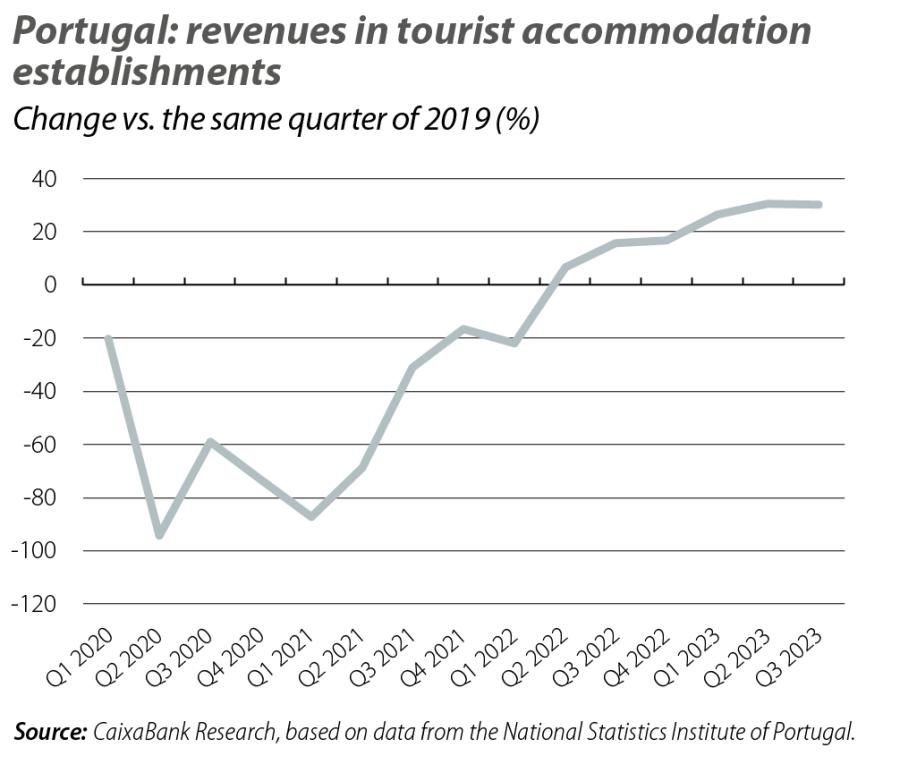Tourism in Portugal in the 2023 high season
In the three years prior to the pandemic, overnight stays in Q3 represented an average of around 40% of annual overnight stays. Therefore, whether tourism exceeds the pre-pandemic levels or not in 2023 depends largely on the sector’s performance in this period.
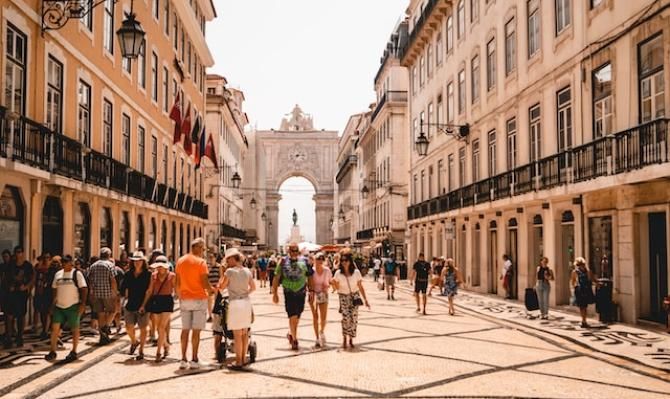
Based on the number of guests staying in tourist establishments, the pre-pandemic level had already been well exceeded by September 2023, for both resident and non-resident tourists (see first chart). Specifically, there were more than 23 million tourists, which makes CaixaBank Research’s forecast for the whole of 2023 (29.8 million guests, 12% above the figure for 2019) perfectly achievable, provided the performance in the last quarter is in line with what happened in 2022.
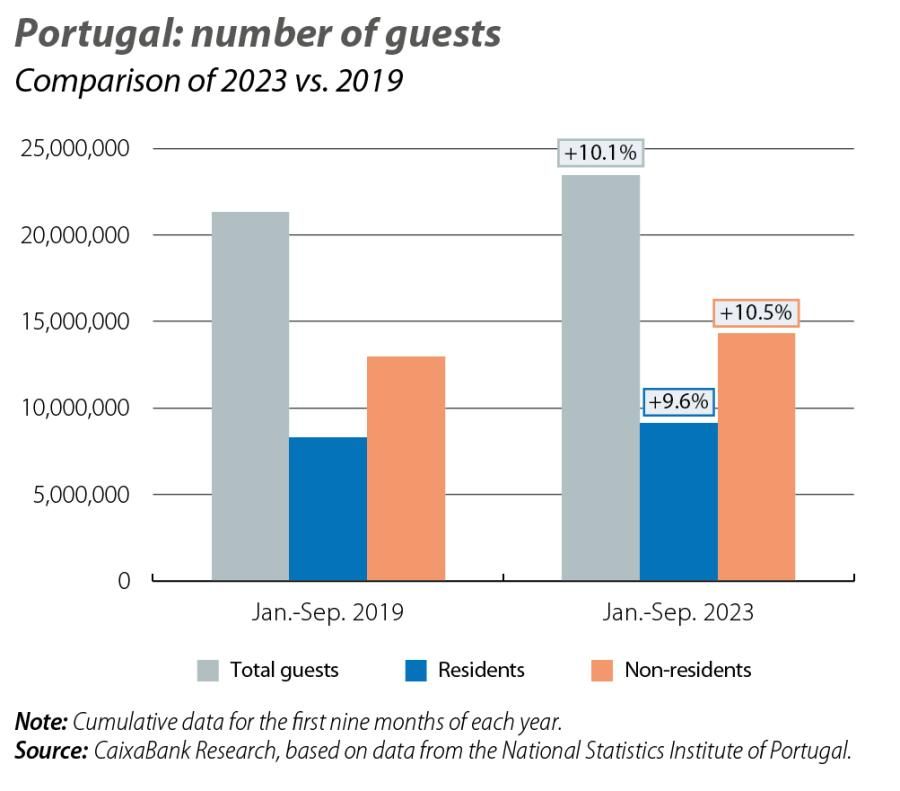
Focusing on Q3 2023, in August there was a record number of overnight stays in hotels, with over 10 million in the month. This was due to the high growth rates of foreign tourists, with those from the US standing out (+62% compared to Q3 2019), as well as those from Canada (+49%) and Switzerland (+27%). However, if we compare the figures with those of the same period in 2022, we cannot be optimistic in all areas; in particular, with regard to resident tourism, taking into account that the number stagnated compared to the previous year and overnight stays actually fell by 4%.
Nevertheless, it must be borne in mind that there has been a certain base effect on the resident tourism figures for Q3 2023, which, unlike foreign tourism, had already exceeded pre-pandemic levels a year earlier, so it is not surprising that it is experiencing lower growth rates. In addition, overnight stays by residents remain higher than prior to the pandemic (by 6%), meaning they are high regardless.
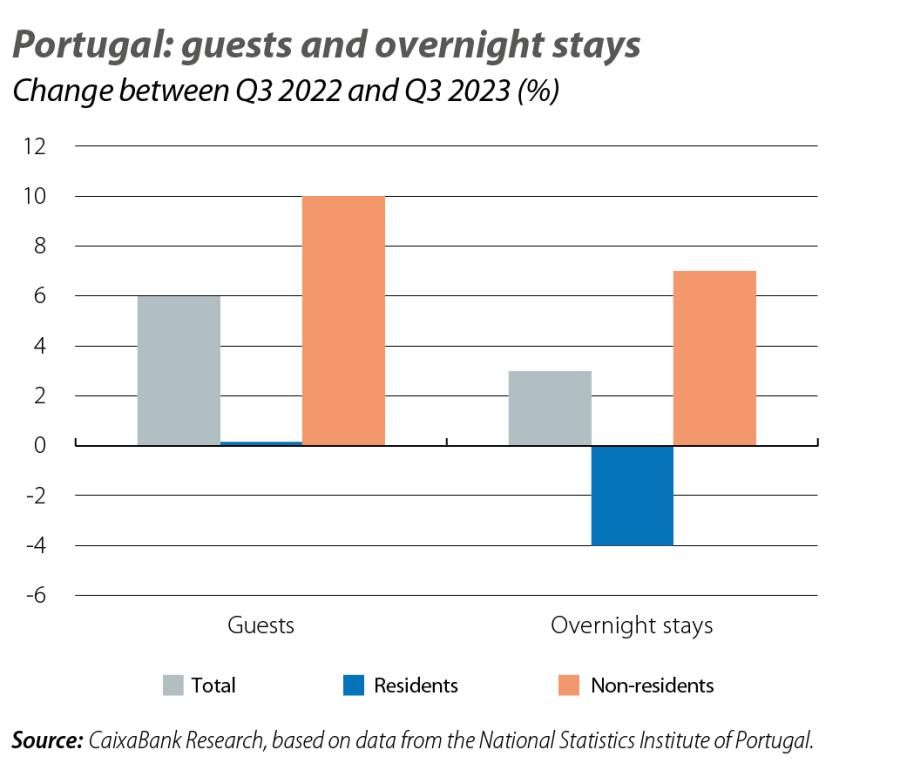
Analysing the breakdown by region of this fall in overnight stays by residents compared to Q3 2022, wee see that it was not uniform across all regions (see third chart); the decrease in overnight stays in the Algarve explains almost 90% of the total decline. There are several factors behind this behaviour. On the one hand, the boom in rural tourism is ongoing, as this segment continues to grow and consolidate its position following the boost provided by the pandemic when people were seeking greater social isolation. This appears to be corroborated by the fact that income from this type of accommodation increased in Q3 2023 compared to Q3 2022, and the regions where overnight stays increased are also those where this type of tourism is more widespread.
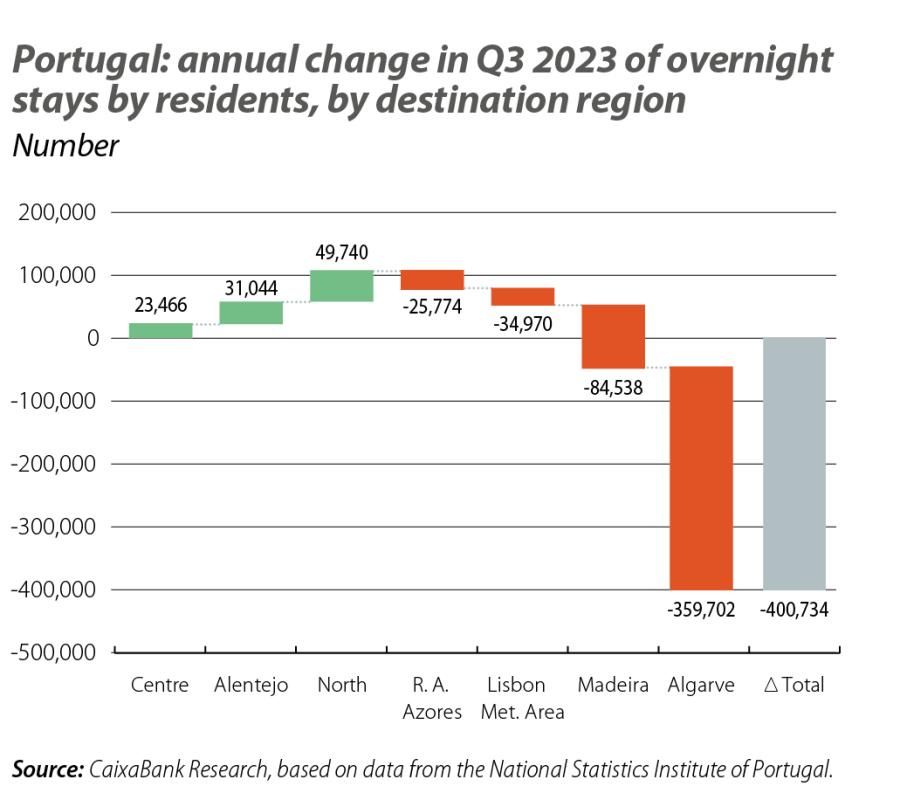
Moreover, this pattern reflects a shift among tourists in favour of cheaper options or, in some cases, shorter stays. Thus, the RevPar1 (64.8 euros in Q3 2023) of the regions where overnight stays grew is significantly lower than that of the regions where overnight stays declined (109.6 euros). In the case of the Algarve, which in August 2023 recorded the highest RevPar of all regions (157.9 euros),2 this is where overnight stays by residents fell the most, as hotel operators chose to position themselves in foreign tourism and higher segments.
Behind the weak performance of resident tourism, there is also a diversion to destinations abroad, which can be seen in the data for the balance of payments of travel and tourism. The overall growth of payments abroad of this item rose in Q3 2022 to 12.1%, with those made to Spain particularly standing out.
- 1. RevPAR (revenue per available room) is calculated as the percentage of occupied rooms multiplied by the average daily rate (ADR).
- 2. The average RevPar between June and August in the Algarve was 124.7 euros (92.8 euros for the country as a whole), with an increase of 5% year-on-year. In Europe, the average RevPar for the same period of the year was 117 euros (data from the specialised website airdna.co). The occupancy rate in Portugal was the highest in Europe in summer, also according to AirDNA.
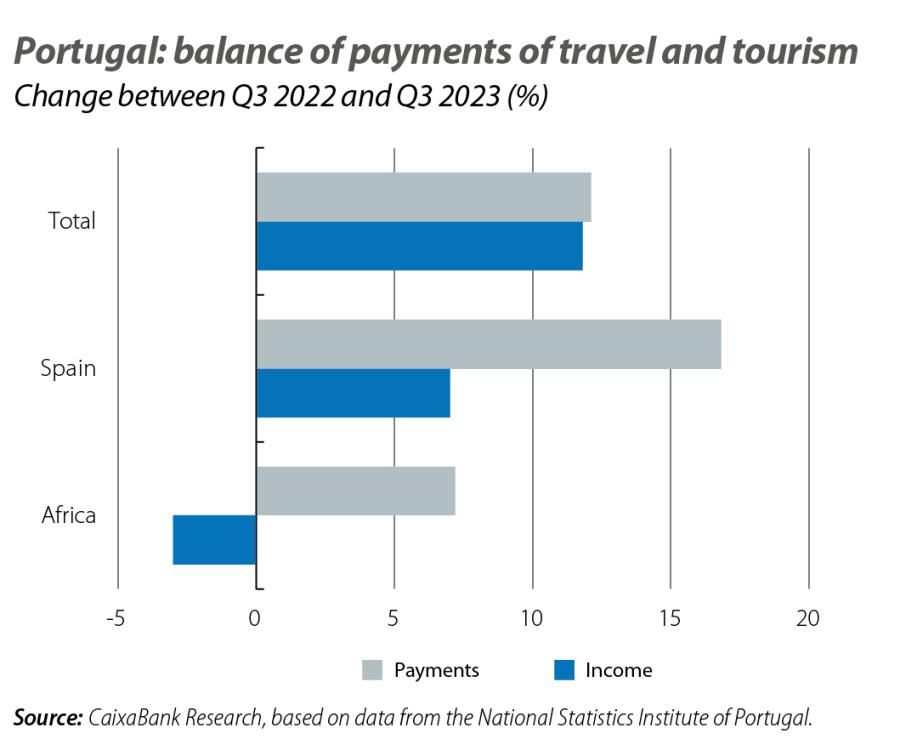
Despite the weak momentum in national tourism, on balance the tourist season was a very good one for the sector. Total revenues of tourist accommodation establishments in Q3 2023 were 30% higher in real terms than in the same quarter of 2019 (see last chart) and 13% higher than in the same quarter of 2022.
For 2024 we expect the sector to continue to grow, albeit at a slower pace, limited, among other factors, by the slowdown in economic activity in the main source countries.
